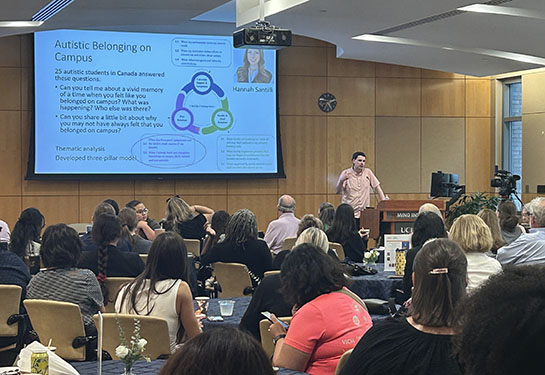‘Ending Unequal Treatment’: National report finds little progress in health equity over two decades
UC Davis psychiatrist Ruth Shim, a contributor to the report, finds room for hope
The U.S. has made little progress in advancing health care equity over the past two decades, and racial and ethnic inequities remain a fundamental flaw of the nation’s health care system.
That’s the conclusion of a new report, “Ending Unequal Treatment: Strategies to Achieve Equitable Health Care and Optimal Health for All,” from the National Academies of Sciences, Engineering, and Medicine.
The findings come more than 20 years after the institution’s groundbreaking 2003 study, “Unequal Treatment: Confronting Racial and Ethnic Disparities in Health Care.”
UC Davis Health psychiatrist Ruth Shim was on the 17-member committee that spent more than a year distilling extensive data for the new report. She is the Luke & Grace Kim Professor in Cultural Psychiatry in the Department of Psychiatry and Behavioral Sciences. Shim is also associate dean of diverse and inclusive education at the UC Davis School of Medicine.
Shim helped develop the report’s conceptual framework. She also helped write the chapters on the external societal forces that contribute to health inequities.
“The original ‘Unequal Treatment’ report was groundbreaking and inspired me to pursue a focus on mental health equity throughout my career,” Shim said. “In updating the report, it is important for us to understand how far we have come, how much progress we have made and how much more work is left to do.”
She notes that the committee considers the report a blueprint for addressing racial and ethnic inequities in health and health care. “We also hope this report leads to greater progress in the next 20 years than what we saw with the original report,” Shim said.

Numerous and pervasive inequities in U.S. health care
The report documents evidence of numerous and pervasive inequities in U.S. health care. One analysis found diabetes in the U.S. is most prevalent in American Indian and Alaska Native adults at 13.6%. That was followed by Black populations at 12.1%, Hispanic populations at 11.7%, Asian populations at 9.1% and white populations at 6.9%.
However, non-white patients are less likely to receive newer, higher-cost drugs and diabetic technology, such as continuous glucose monitors and insulin pumps. Hospitalization rates for Black patients with diabetes are more than 2.5 times higher than for white patients.
More broadly, the report states that racially and ethnically minoritized individuals are significantly less likely to have a usual source of primary care. During emergency department visits, they experience longer wait times and are assigned less acute triage severity scores. Long-term care facilities serving predominantly racially and ethnically minoritized residents offer fewer clinical services, have lower staffing levels and receive more care deficiency citations.
One of the most important things we hope people take away from this report is that health is not a zero-sum game. If we focus on improving the health outcomes for racial and ethnically minoritized individuals, that improves the health of everyone in the United States.”—Ruth Shim, Luke & Grace Kim Professor in Cultural Psychiatry, Department of Psychiatry and Behavioral Sciences
Health is not a zero-sum game
Although much of the findings are sobering, Shim finds room for hope.
“So much of what is needed to improve health equity in the U.S. already exists. However, policies and implementation of strategies are not systematically enforced. Greater attention to accountability could lead to greater health equity gains,” Shim said.
The report recommends multiple actions that Congress, the U.S. Department of Health and Human Services, National Institutes of Health, Centers for Medicare & Medicaid Services and other agencies should take to remedy inequities in health care.
“One of the most important things we hope people take away from this report is that health is not a zero-sum game,” Shim said. “If we focus on improving the health outcomes for racial and ethnically minoritized individuals, that improves the health of everyone in the United States. As stated throughout the report: ‘We are in this together.’”
Read more about the study here.
Resources





